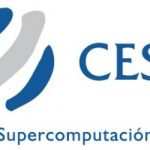Researchers at Fermilab Using Superconducting Qubits Using Electromagnetic Radiation to Access Higher-Energy Quantum States

(FermiLab) Akshay Murthy, a postdoctoral research associate at Fermilab, and his colleagues are researching computer technology called superconducting qubits (quantum bits) that use electromagnetic radiation to access the higher-energy quantum states. Specifically, they are working to prolong the qubits’ coherence time—the amount of time that the system can live in the quantum space and perform calculations. Right now, we’re getting poofed out of the “everywhere at once” mode before we can find the cash. In fact, the coherence times of qubits need to be 1,000 to 1 million times longer before they can be used for quantum computing.
To extend coherence times, the team is examining the qubits under a powerful microscope and analyzing the chemical composition of their surfaces to look for any defects that might cause occupation of the quantum states to come crashing down prematurely. They are also exploring modifications that could be made to the external environment, such as shielding the qubit in a freezing cold chamber to prevent temperature fluctuations that might destabilize the system.
“This technology is truly transformational if we’re able to deliver on its promises,” Murthy said.
Murthy and researchers at Fermilab are also working to develop technology for quantum computers that can solve complex problems exponentially faster than standard computers.
Think of it this way. If someone gave you a list of locations and told you they had stashed a pile of cash at one of them, you would have no choice but to search one location, and then the next, and so on until you found it. Standard computers are subject to this same limitation. Just as you can only be in one place at a time, the system can only occupy one of two defined states (represented by the ones and zeroes you see in computer hacking movies) at a given moment.
This system can occupy multiple superimposed quantum states simultaneously, allowing the computer to consider many possible solutions to a problem at once.





















